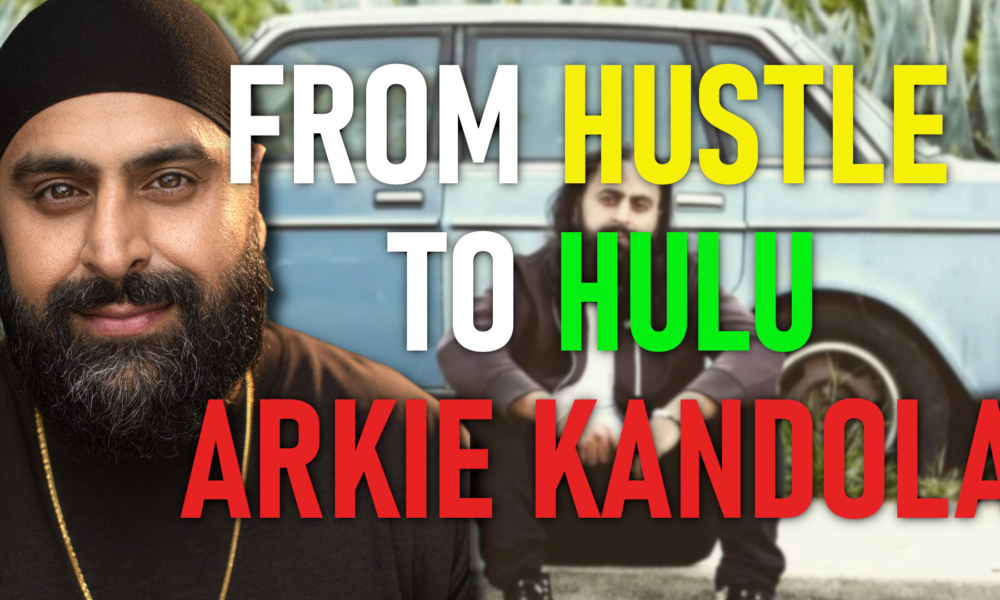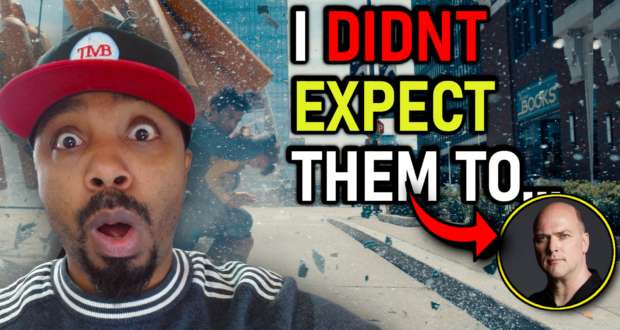The entertainment industry is no easy playground, but if anyone knows how to navigate the highs and lows with style, it’s Arkie Kandola. From his comedic chops as Sean, the snarky baggage handler in Hulu’s How to Die Alone, to producing culturally rich narratives like The Book, Arkie is all about betting on himself.
We sat down with the rising star to chat about his breakout role, his inspirations, and his plans to redefine the game for actors of South Asian descent. Spoiler: There’s a whole lot of grind behind those effortless laughs.
From the West Coast to the Big Screen
Arkie’s journey to How to Die Alone started long before cameras rolled. “It’s funny how this game works,” he says, reflecting on ten years of grinding on the West Coast. That persistence paid off when he landed the role of Sean. In the series, Arkie serves up comedic moments alongside Natasha Rothwell, the show’s creator, star, and all-around powerhouse.
“Working with Natasha was next level,” Arkie says, calling her a “captain” who steered the project with grace. The show, which blends humor with raw emotion, dives deep into life’s messy truths. “One day, you’re laughing. The next, you’re crying,” he says. “That’s real life, right?”
Comedy with a Cause
While Sean might be all sarcasm and wit on-screen, Arkie brings a thoughtful approach to his roles. “I always try to add a little bit of me to every character,” he explains. That “little bit” makes Sean relatable—not your typical sitcom caricature but a guy you’d meet at the airport, maybe even your next flight.
He credits the show’s diverse cast and everyday vibe for its connection with audiences. “It’s not about storybook characters—it’s real people,” he says. And speaking of real, Arkie’s improvisation skills were put to the test on day one when Natasha Rothwell gently nudged him to “stick to the script.” Lesson learned, but his ability to adapt and vibe with the cast—particularly comedian CP—shines through.
Breaking Stereotypes, One Role at a Time
As a Punjabi actor, Arkie’s path hasn’t always been smooth. “Being a brown boy in this industry, there’s a lot of pressure to fit into stereotypes,” he admits. But Arkie is all about flipping the script. Whether it’s ditching the clichéd cab driver roles or bringing depth to comedic parts, he’s carving out space for authentic representation.
“I want people to see me for who I am, not just a type,” he says. That authenticity shines in How to Die Alone and his broader career choices. From the supernatural world of Siren to the sci-fi realms of The Twilight Zone, Arkie’s versatility is clear.
Stepping Behind the Camera
But acting isn’t Arkie’s only hustle. Over the last six years, he’s expanded into producing. His passion project, The Book, is a perfect example of his commitment to meaningful storytelling. The film explores themes of healing, tradition, and family, bridging the gap between Ayurvedic practices and modern medicine.
For Arkie, producing is about growth and legacy. “I want to tell stories that last beyond my lifetime,” he says. Inspired by mentors like Seth Rogen, Arkie sees producing as a way to control his narrative and uplift others. “It’s about creating opportunities—not just for myself, but for the next generation.”
Looking Ahead
When asked where he sees himself in five to ten years, Arkie doesn’t hesitate. “I just want to keep getting better,” he says. Whether it’s in front of the camera or behind the scenes, his focus remains the same: stay authentic, stay grateful, and keep creating.
Arkie Kandola isn’t just another actor with a dream. He’s a storyteller, a disruptor, and a reminder that sometimes the best roles are the ones you create for yourself. Fans of How to Die Alone will undoubtedly be watching what he does next, and so will we.















